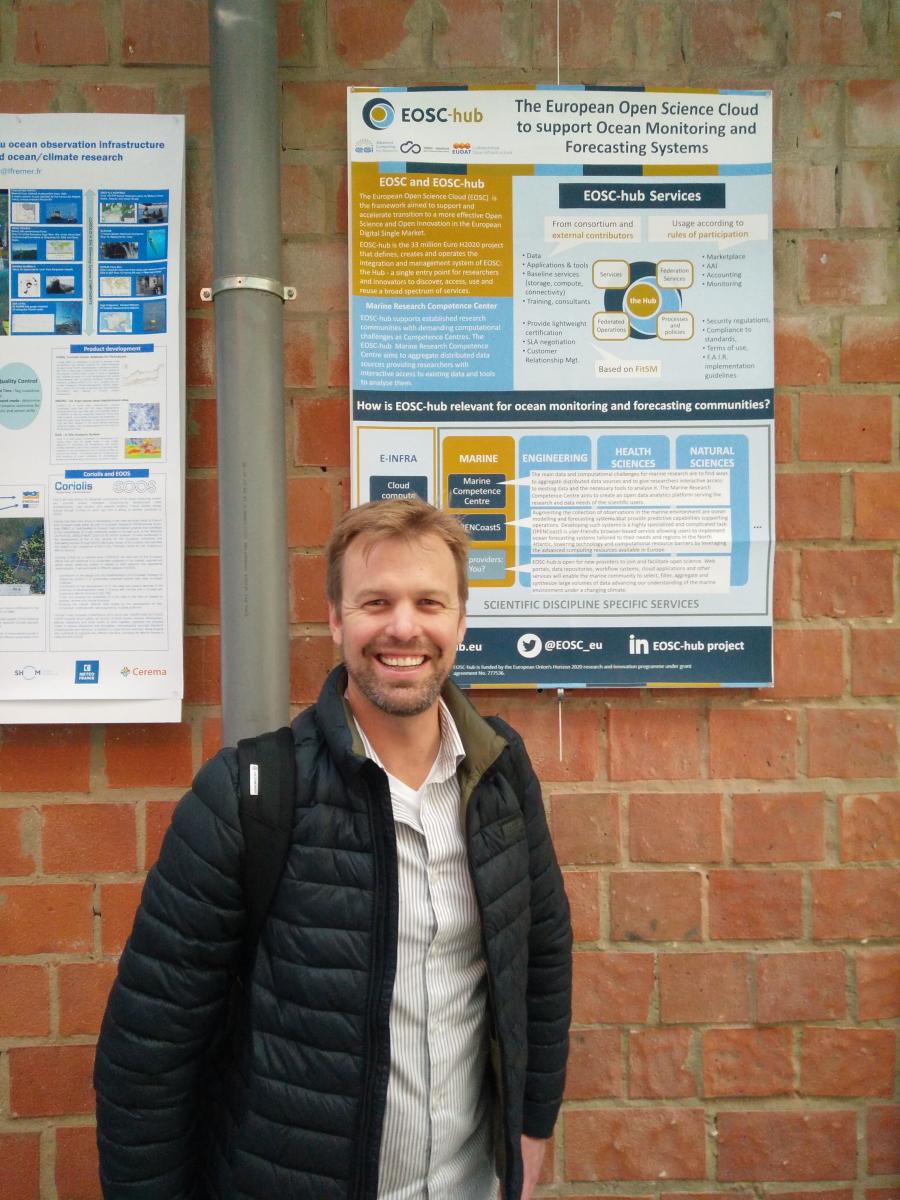This is a website for an H2020 project which concluded in 2019 and established the core elements of EOSC. The project's results now live further in www.eosc-portal.eu and www.egi.eu
This is a website for an H2020 project which concluded in 2019 and established the core elements of EOSC. The project's results now live further in www.eosc-portal.eu and www.egi.eu

The European Ocean Observing System (EOOS) Conference took place in Brussels, from 21 to 23 November 2018.
During the conference, I had the opportunity to present the poster “The European Open Science Cloud to Ocean Monitoring and Forecasting Systems” on behalf of the EOSC-hub project and as one of the themes of the event - "From standalone to integrated ocean and coastal observing platforms".
The conference was successful in bringing together ocean observing communities, public authorities, industries such as fisheries, energy, transport, and the wider society. 
One of the key aims of the meeting was to address the fragmentation of the ocean observing community and to promote better coordination between them. EOOS is a key role-player in this regard and recently published its strategy and implementation plan, where they envision a sustainable ocean measurements by making the observing system a public utility.
Here are a few home-take messages of the event:
Data collection is at the foundation of the whole marine knowledge value chain. Ocean science & observation can serve communities as long as the data is made publicly available and published.
The global challenges are huge – this pushes us to rely more on our ocean resources than ever before.
A lot of open questions remain but we now have the infrastructure, know-how and instruments to build on what exists and improve dialogue.
Focus on “NOST” – Network what we have, Open access, Smart equipment, Transfer knowledge.
The meeting concluded with a call to action to move towards a more integrated, transparent and coordinated approach in implementing the European Ocean Observing System.
EOSC-hub has a dedicated Marine Research Competence Centre that is developing a platform where scientists and users can easily access a large volume of reference marine observations. By mobilising European research and e-Infrastructure to provide cross-disciplinary services during all phases of the research data lifecycle, the project aims to accelerate a transition to Open Science and Open Innovation.
Key elements in this process are:
Simplifying access
Remove fragmentation and improve interoperability
Facilitate open access
Increase innovation
Find out more about the competence centre.
Have a look at the EOSC-hub poster for EOOS.